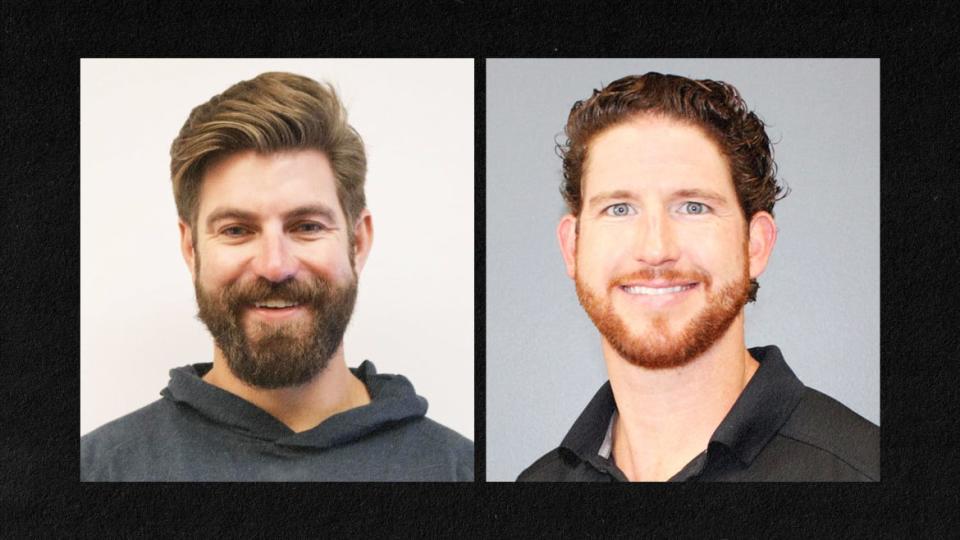The Adults of the Youth Lacrosse World Are Getting Rather Nasty

The cutthroat world of youth sports is getting even more ruthless.
Embezzlement scandals have rocked youth soccer leagues, parents have sued childrens’ football coaches over their kids’ lack of playing time, and lawyers have been called in for injuries children suffered while playing baseball, even if the headlines at the time made light. After all, standouts in football and basketball can go on to earn millions in the pros, prompting 9-year-olds today to get looks from college scouts and eighth-grade basketball players to be recruited by Division I schools.
But a scathing new lawsuit reveals just how incredibly nasty and competitive things have become for the grown-ups teaching youngsters how to play lacrosse.
“As with anything, as soon as you start realizing you can make money in said thing, people who want to make money doing that thing are always going to come,” Ted Hust, a longtime lacrosse coach and host of the LaxFactor podcast, told The Daily Beast. “And not necessarily ruin the party, but take over the party.”
In the bitter suit, a top national youth and club lacrosse program has accused a former coach of “working against the company from the inside,” allegedly denigrating its owners as incompetent deadbeats while carrying out a secret conspiracy to poach kid athletes, and key adult staff, for a new rival venture.
Parents who hoped Illinois-based True Lacrosse, which operates club and travel teams in 20 states and Washington, D.C., would help their children qualify for coveted college sports scholarships were instead told the organization was broke and that things had gotten so bad, True was stiffing its employees and couldn’t pay its rent, according to the suit, first obtained by The Daily Beast.
But the company lays much of the blame at the feet of onetime Texas operations head Kevin Finn, who it says “engaged in active disloyalty,” and stole not only its customer base on his way out the door but, perhaps most crucially in today’s America, its Instagram account. Finn now runs a competing organization, Supreme Lacrosse, based in the Lone Star State.

A scathing new lawsuit reveals just how nasty and competitive things have become for the grown-ups running youngsters’ lacrosse leagues.
Instead of building their own business “from the ground up, like True Lacrosse did,” Finn and a handful of other insiders “attempted to come in and take it for themselves, in a way,” Jack Blum, one of the attorneys representing True Lacrosse, told The Daily Beast, describing the situation as “bare-knuckle.”
“I think people really want to be an owner rather than an employee,” Blum said. “This wouldn’t be the first time in history that someone had that desire. But if that’s what you want to do, then you should put in the work from the ground up to build your own business... rather than going in and trying to essentially take away something that someone else has already put their blood, sweat, and tears into building.”
A small community
True Lacrosse was founded in 2008, by a pair of professional lacrosse teammates in Chicago. The venture has since become a powerhouse in youth—eighth-grade and below—and club lacrosse—high school kids—with a podcast, a charitable foundation, and a line of merch. It’s a community in which reputation is everything, according to True’s complaint. The deep and longstanding relationships between players, former players, their families, and high school and college coaches are vital in maintaining a steady flow of referrals that can make or break a program, the complaint states.
Finn, a midfielder, played on the LXM Pro Tour, an offseason showcase, after having competed at the Division III and Division levels in college. He joined True Lacrosse in 2010, rising through the ranks to oversee the enterprise’s Texas-based programs, according to the company’s lawsuit. The position meant establishing deep bonds in the local and regional lacrosse world as “the face of True Lacrosse in Texas,” according to the complaint. (Finn and Moerschel did not respond to requests for comment.)
“Obviously, college admissions have been in the news—not because of this case, because of other cases,” Blum told The Daily Beast. “And it’s something that people care a lot about, it’s very competitive. And people are looking for an edge, basically. And I think that a lot of people see sports as being, potentially, that edge.”
Parents and other coaches speak highly of Finn in testimonials posted to Supreme’s website, calling him a “positive leader,” a “great mentor,” and someone who is capable of “remarkable things.” But according to True, Finn used his position to siphon off “knowledge of players and their families that is considered confidential and proprietary information of True Lacrosse and is not shared by True Lacrosse with the public or ascertainable through public sources without significant effort.”
The company claims Finn eventually began “plotting” with True’s state-level director for Minnesota, L.C. Moerschel, to launch their own competing business. On March 20, Moerschel went to True’s founders with a proposal to buy into the operation, according to the complaint, which says the overture was rejected. Two days later, Moerschel quit.
Shortly after, Moerschel formed the American Lacrosse Collective (ALC), a national umbrella under which state-level programs could compete. Then, Moerschel and Finn—who remained a True employee—began soliciting other True staff to join their new organization, according to a companion lawsuit True filed against Moerschel in Minnesota federal court. The complaint, which is similar to the one against Finn, alleges the two said they “wished to poach True Lacrosse’s entire staff for their new venture and essentially replicate True Lacrosse’s operation.”
To convince the coaches and “hard-earned customer base of players” to defect, True claims Finn and Moerschel took to badmouthing True to employees, players, and parents, perpetuating “false statements about True Lacrosse's ethics, competence, and financial condition.”
“The false statements made by [Finn and Moerschel] include, but are not limited to, allegations that True Lacrosse is being purchased by a private equity firm called 3STEP Sports and would not exist in a year, that True Lacrosse is ‘hemorrhaging money,’ and that True Lacrosse’s financial condition is so dire that it is unable to pay its rent on time or pay employees,” both lawsuits state. The allegations were “categorically false,” True argues.
Eventually, True says it learned about Finn’s involvement with Moerschel and ALC, and reminded him that he could not simultaneously work for a direct competitor, according to the lawsuit. It says Finn told his bosses that he wanted to remain at True, but was “unwilling” to promise not to solicit kids or employees.
On May 18, Finn was fired.

L.C. Moerschel and Kevin Finn.
A week later, Finn incorporated an entity called Supreme Lacrosse, which is listed on ALC’s website as its Texas affiliate, according to True’s complaint. True claims Finn then continued his “false and malicious disparagement” of the company and its owners.
“According to the parent of one True Lacrosse player, [Finn’s] ‘main selling point is bad mouthing [True Lacrosse’s co-founder] as a bad person,’” the complaint goes on. “... These statements are material to players and their families who make a long-term investment in their athletic careers and highly value continuity to enhance their prospects in the high-stakes college recruiting process.”
True claims Finn also changed the password and effectively locked True out its Instagram page—something they say they only discovered roughly two weeks after Finn was terminated.
The account was subsequently deleted before reappearing as “Supreme Lacrosse Club, causing confusion among players, the complaint says.
True says its lawyer sent Finn a written demand to return their Instagram account, which the complaint says he did, on June 16. But all of the content remained deleted, according to True.
The mess fed into “Finn’s false and disparaging narrative that True Lacrosse is going out of business,” the complaint states.
True is now seeking a judgment from Finn for up to $1 million. The company has a third lawsuit in Illinois and has petitioned for a restraining order to prohibit other employees from soliciting the company’s players, Blum said.
Bitter battles
This is not the first time True has tangled in court with competitors, having previously been on the other side of the legal equation.
In 2021, the World Series of Youth Lacrosse (WSYLAX) hit True with a $2 million lawsuit for trademark infringement, claiming the organization usurped its name and logo and began holding events as WSYLAX. (True and WSYLAX, which was founded by Jake Steinfeld of “Body by Jake” fame, worked out a settlement in March, according to court records.)
That same year, True and its owners were named in a $35 million lawsuit accusing them and other lacrosse organizations of excluding a minority-owned team from participating in a tournament. True officials said it was nothing of the sort, that they believed the team was loaded with ringers and wanted to keep things fair for everyone else. The judge in the ongoing case said in a March 24 opinion that he was not convinced there had been racism involved, and team officials refiled a toned-down complaint seeking $750,000 for lost revenue.

Only about 13 percent of high school lacrosse players go on to play lacrosse at the collegiate level.
The costs to participate on a good travel team can range from $5,000 to $10,000 a year per player, and True is one of the most expansive—and most expensive—options on the market, according to one source inside the lacrosse industry. And while the quality of the coaching is high, the source, who did not want to be named so as to protect professional relationships, told The Daily Beast that True is considered to have a bit of an “inorganic vibe” compared to some smaller operations. This, the source said, stems from True’s more acquisitional business model of buying up existing teams in various locations and rebranding them under its own banner.
While standouts in football and basketball can go on to earn millions in the pros (an 18-year-old LeBron James signed an NBA contract in 2003 worth $13 million over three years), there’s not much money in professional lacrosse, with average salaries hovering in the mid-$30,000 range and top players making around $50,000. Endorsements can add significant extra income, but running camps and clubs is particularly lucrative. (True’s founders started the organization while still playing professionally.)
Relative to every other sport in North America, many young lacrosse players aspire to play in college and their thoughts turn to a pro career after they’ve found success at the collegiate level, said Terry Foy, CEO of Inside Lacrosse magazine. However, even that is a long shot for all but the best of the best, according to Foy.
“The math is pretty simple: About 13 percent of high school lacrosse players [go on to] play college lacrosse,” Foy told The Daily Beast, emphasizing that this figure does not include high school lacrosse players who play other college sports or those who play on college club teams. Still, it’s an exceedingly low number, he said. That’s why he encourages people “not to start playing the game in a transactional way.”
If a high school lacrosse player is lucky enough to make the college varsity team, the odds of getting there on an athletic scholarship is “a lot lower than 13 percent,” he said.
Roughly 65 percent of college lacrosse players are at Division III schools, where there are no athletic scholarships. None of the seven Ivy League universities offer athletic scholarships, nor do any of the nation’s service academies, Foy pointed out. Division I lacrosse squads are limited to 12.6 full scholarships spread out over as many as 50 student athletes on the roster, according to NCAA data.
“You have to divvy that up amongst the entire team,” said Hust, the podcaster. “So like, if a kid’s going to school for free, that kid almost for sure has either academic [scholarship] money, or financial aid.”
Most parents are trying to do the right thing, but have been convinced their kid must play on the biggest, most prestigious travel lacrosse team in order to get into college, Hust continued.
“I think that’s the biggest scam they’ve been able to pull, is that you have to do this,” he said. “But the reality is—especially for lacrosse, but I think this is true for most sports that aren’t football or basketball—at the highest [collegiate] levels, there is no such thing as a scholarship.”
That’s why parents shouldn’t look at their child’s lacrosse career as an “investment” in their future, Hust said. (Many experts warn against viewing your child’s interest in amateur athletics as a “career” at all.) Hust said paying for a fancy lacrosse program almost certainly won’t result in a parent paying less for their kid to go to college.
If anything, he said, “it might be the opposite.”
“It may be enough to get your kid noticed by a place like Syracuse, that just so happens to be one of the most expensive private universities in the country,” Hust pointed out. “And they’re not going to get scholarship money that is going to equal what you spent on that kid every season… That just doesn't exist. Not in the sport of lacrosse, anyway.”
The most realistic and beneficial “transactional” opportunity for high school lacrosse players comes from their athletic skills perhaps securing them an admissions spot at a college they might not have gotten into without a positive recommendation from their coach, according to Foy.
In the end, Hust thinks there’s a way for operators like True and Supreme to make a profit in the club lacrosse game “and still have morals, and still not piss everybody and their brother off.”
“I’m hoping we see a trend where it’s kind of taken back by, let’s not say the adults, but by adults that have better intentions,” he said, “versus the adults that have realized, ‘Holy crap, I love coaching lacrosse. I love making money. Let’s put those two things together and let’s make a boatload of money.’”
Get the Daily Beast's biggest scoops and scandals delivered right to your inbox. Sign up now.
Stay informed and gain unlimited access to the Daily Beast's unmatched reporting. Subscribe now.

